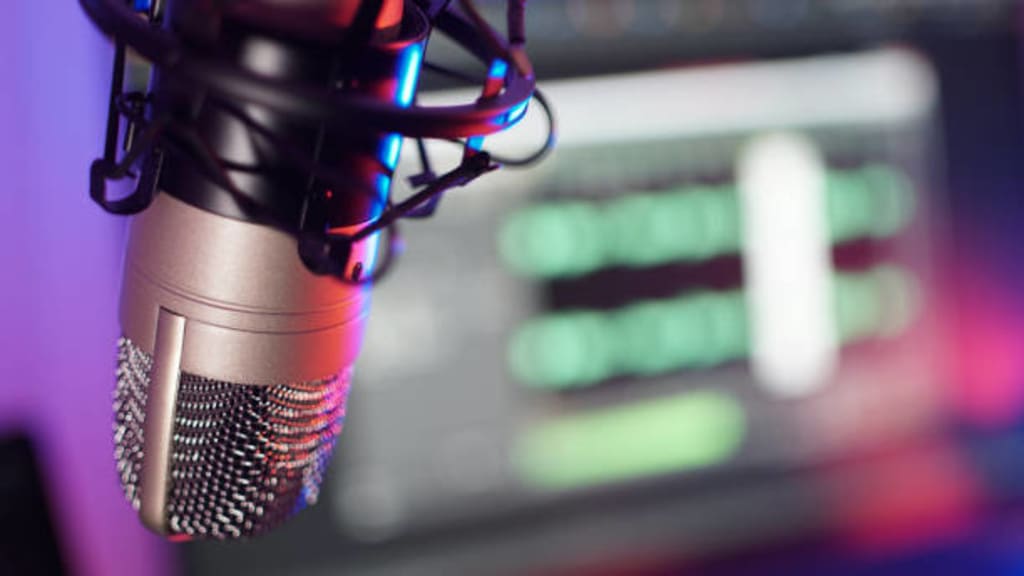So You Want to Start a Podcast?
It's Easier Than You Think!

I'm going to start off by telling you that I love being a podcaster, and I love listening to podcasts. My podcasting journey started by accident, and it was one of the happiest accidents I've ever experienced.
I am a high school band director and a professional musician. This busy lifestyle left me very little time to pursue other areas of interest. Enter the COVID-19 pandemic, and my professional music career ground to a halt, along with just about everything else in society.
Our high school was shut down, and we had to teach online. As an instrumental music teacher, this was a challenging situation, but I decided to turn the course into a rock and roll history class, since rock history is a passion of mine. As part of this class, I started creating short podcasts to share with my class, and in no time I was hooked! Within a few weeks, I decided to take the plunge and started my first podcast.
Like everything else, the hardest part about podcasting is actually getting started. We all have that little voice which tells us that we aren't good enough, that we don't know enough, and that we aren't ready. Luckily, my experiences as a musician have taught me to ignore that voice.
To start a podcast, you need to be passionate about something, in my opinion. Think of something that you could talk about for twenty minutes without any prompting. If you can do that, chances are you are ready to jump in to the podcasting world.
The best part about this hobby (it is a hobby for the vast majority of podcasters) is that you don't need a lot of money or a lot of equipment to get started. Let's go over what I consider to be the bare minimum in terms of equipment and software.
The first thing you should have is a computer (I use a MacBook Air). Although you can technically record a podcast from your smartphone, I highly recommend a computer. Working from a laptop or desktop is much easier and much quicker and will generally produce better results. If you have a computer that is working well, you are good to go!
The second item on the list is a microphone. There are many reasonably priced options that will help you produce good quality audio. When you research microphones, you will run across USB microphones and XLR microphones. If you are not tech-savvy or are on a budget, buy yourself a USB microphone. These are plug and play, and will give you much better audio quality than the microphone built into your computer. I started with a $60 microphone that I used for quite a while before I upgraded.
It is true that XLR microphones will give you better sound, but if you don't know what 'XLR' means, you probably should stick with a USB microphone for now. My top recommendation for a USB microphone is the RODE NT-USB Mini. This little microphone is affordable, and punches well above its weight in terms of audio quality.
Next up on the list is a set of headphones. These do not need to be expensive, and I even see podcasters using earbuds. You just need to have something that allows you to hear your sound. A wired connection is preferable to Bluetooth. Again, my first set of headphones were not expensive. They cost about $65 and I used them for quite a while.
The final ingredient that you need is recording software. There are plenty of free options out there, so don't rush out and spend money needlessly. If you are a Mac user, every Mac comes with GarageBand installed on it. GarageBand is fantastic (and easy) free software that a lot of podcasters start with (and many never leave). It is full-featured, but not intimidating, and you can achieve great results without being a sound engineer.
For Windows users, Audacity is the most popular free option. It is incredibly powerful, but there is a much steeper learning curve. Plus, the software looks like it was released in 2005. If you are going to be using Audacity, be prepared to spend more time learning. However, Audacity is a lot more powerful than GarageBand.
There are a plethora of paid options, but that is a topic for another day. As long as you have an idea plus the equipment that I've mentioned above, you should be off to the races. I'll talk about how to get your podcast online in a future article.
Podcasting has turned into an incredibly rewarding hobby for me, and I've met some wonderful people along the way, including my co-host on my current show. Not only do we enjoy working together, but he has also become one of my closest friends. Working on our show never feels like work, and our weekly recording session is something that we both eagerly look forward to.
I hope that if you are reading this and have been considering starting a podcast that you will jump in feet first and get started. The podcasting community is very supportive, and it is a wonderful journey filled with many opportunities to learn new things and meet new people.
About the Creator
Enjoyed the story? Support the Creator.
Subscribe for free to receive all their stories in your feed. You could also pledge your support or give them a one-off tip, letting them know you appreciate their work.






Comments
There are no comments for this story
Be the first to respond and start the conversation.